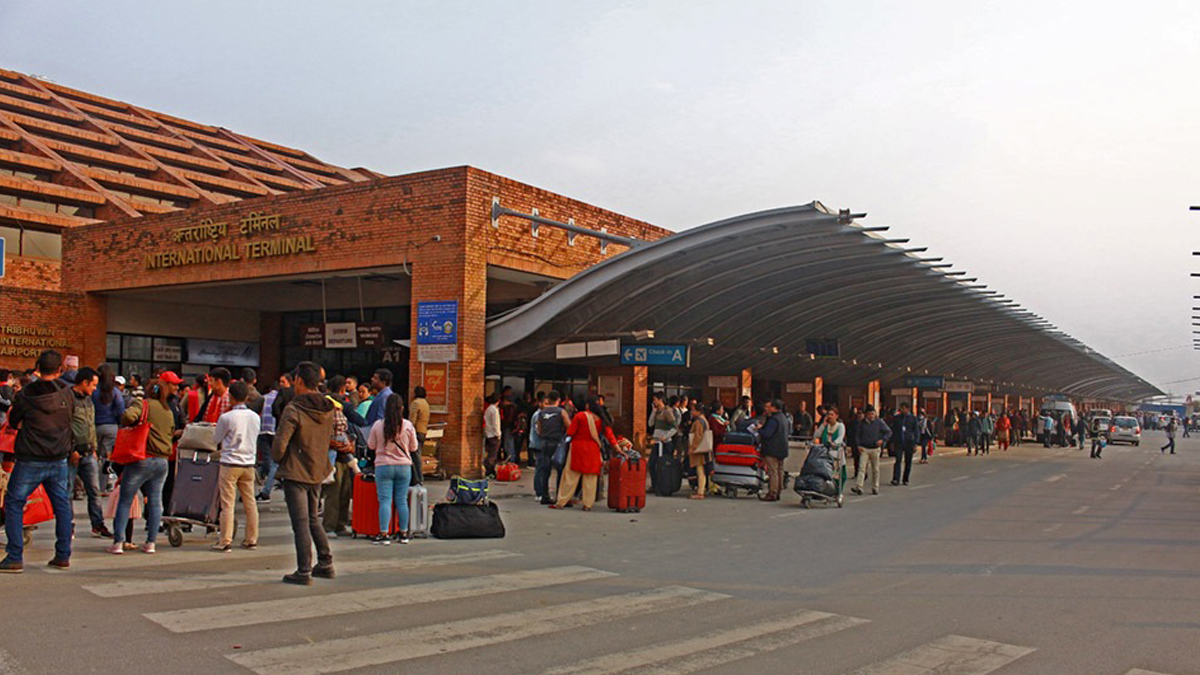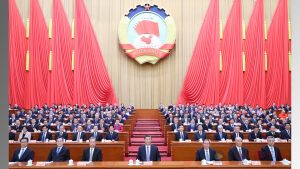
The Tragic Reality of Nepali Youths: A Deep Dive into the Foreign Employment System

The recent tragic incident involving the death of two Nepali youths aspiring to work in South Korea has exposed the grim realities of the foreign employment system in the country. The unfortunate event, which occurred last Friday, highlights the inadequacies, corruption, and unethical practices within the system. This article delves into the root causes of the issue, exploring the failure of authorities, the plight of aspiring migrant workers, and the broader challenges faced by Nepal’s foreign employment sector.
Inadequacies in the Employment Permission Service (EPS) Office:
The incident in Lalitpur sheds light on the failure of the EPS Office to address the concerns of aspiring migrant workers. The office’s refusal to allow qualified candidates to take examinations for alternative employment sectors fueled frustration among the youth. The subsequent violent outburst and the tragic loss of lives underscore the need for a comprehensive reevaluation of the EPS policies and procedures.
Unethical Practices and Exploitation:
Reports emerging after the incident suggest a deeper malaise within the EPS office, with allegations of unethical practices such as charging exorbitant fees and ticket prices to eligible Nepali youths. This raises questions about the integrity of the officials involved and their commitment to ensuring a fair and transparent foreign employment process. The exploitation of vulnerable youths seeking better opportunities abroad is a stain on the nation’s reputation.
Systemic Anomalies in the Foreign Employment Sector:
The incident serves as a stark reminder that Nepal’s foreign employment sector is riddled with anomalies. Beyond the EPS office, a nexus between manpower agents, immigration officials, and other stakeholders appears to exploit the desperation of those seeking employment abroad. This systemic issue poses a significant challenge to authorities, as dismantling such networks requires a concerted effort and a commitment to rooting out corruption.
Rising Trend of Nepali Youths Seeking Opportunities Abroad:
The allure of foreign employment has led to an increasing number of Nepali youths leaving the country in pursuit of better prospects. Whether for higher education or as skilled and unskilled laborers, the trend has resulted in a significant drain on the country’s workforce. The article explores the motivations behind this exodus, ranging from a lack of opportunities in Nepal to the appeal of studying and working abroad simultaneously.
Challenges Faced by Returning Migrant Workers:
While many aspire to find better opportunities abroad, the challenges faced by returning migrant workers often go unnoticed. The article sheds light on the difficulties they encounter, including social reintegration, mental health issues, and the struggle to apply acquired skills in the domestic job market. Addressing these challenges is crucial to creating a sustainable and supportive environment for those returning to Nepal.
Government Initiatives and Their Efficacy:
The swift action taken by the government, including the formation of a high-level committee and financial compensation for the victims’ families, is acknowledged. However, questions arise about the long-term effectiveness of such measures in addressing the systemic issues within the foreign employment sector. The article examines the need for sustained reforms, increased transparency, and accountability.
Understanding the Economic Landscape:
To comprehend the urgency of addressing issues in the foreign employment sector, it’s essential to delve into Nepal’s economic landscape. The article explores the economic challenges faced by the country, including unemployment rates, GDP growth, and the role of remittances in sustaining the economy. A nuanced understanding of these factors is crucial for formulating comprehensive policies that balance the aspirations of the youth with the economic realities of the nation.
Analyzing Global Labor Migration Trends:
Nepal’s experience is not isolated, and global labor migration trends play a significant role in shaping the aspirations and choices of its youth. This section of the article delves into international migration patterns, the demand for foreign labor in destination countries, and the impact of global economic dynamics on the choices available to Nepali migrant workers. A comparative analysis with other countries facing similar challenges provides insights into potential solutions.
Civil Society’s Role in Advocacy and Support:
The role of civil society in advocating for the rights and welfare of migrant workers cannot be overstated. This section explores the initiatives undertaken by non-governmental organizations, human rights groups, and advocacy organizations in Nepal. It highlights success stories and challenges faced by these entities in pushing for reforms, raising awareness, and providing support to the victims of the foreign employment system.
Educational System Reforms:
One of the driving forces behind Nepali youths seeking opportunities abroad is the perceived lack of quality education and career prospects within the country. This section examines the state of Nepal’s education system, identifying areas that require reforms to align education with market demands, foster skill development, and create a conducive environment for youth to flourish domestically.
Psychosocial Impact on Families:
The decision of Nepali youths to seek opportunities abroad has a profound psychosocial impact on their families. This section explores the emotional and social consequences faced by families left behind, often consisting of elderly parents, siblings, and spouses. Understanding these dynamics is crucial for policymakers and social workers in crafting support systems that mitigate the negative effects of labor migration on family structures.
Women in Foreign Employment:
A significant proportion of Nepali migrant workers are women, and their experiences differ from their male counterparts. This section delves into the challenges faced by Nepali women working abroad, including issues of exploitation, gender-based violence, and the lack of adequate legal protections. It also explores the potential for empowering women in foreign employment and addressing gender-specific concerns within the broader context of labor migration.
Legislative Reforms:
An in-depth analysis of existing legislation governing foreign employment in Nepal reveals gaps and loopholes that contribute to the prevailing issues. This section explores the need for legislative reforms to enhance the protection of migrant workers, ensure fair recruitment practices, and hold accountable those responsible for exploitation and malpractice. Comparative studies with other countries that have implemented successful reforms provide valuable insights.
International Collaboration and Diplomacy:
Given the transnational nature of labor migration, effective collaboration with destination countries is paramount. This section explores the diplomatic initiatives taken by Nepal to strengthen ties with destination countries, negotiate better working conditions for its migrant workers, and foster international cooperation in addressing the challenges of foreign employment. The role of international organizations in facilitating dialogue and collaboration is also examined.
Media’s Role in Shaping Perceptions and Advocacy:
Media plays a pivotal role in shaping public perceptions and influencing policy discourse. This section examines the role of both local and international media in reporting on issues related to foreign employment in Nepal. It analyzes how media coverage can contribute to advocacy efforts, hold authorities accountable, and raise awareness about the challenges faced by migrant workers.
Conclusion:
In conclusion, the tragic incident in Lalitpur serves as a wake-up call for Nepal to address the deeply rooted problems within its foreign employment system comprehensively. Beyond immediate actions and compensations, there is a pressing need for systemic reforms, ethical practices, and a commitment to protecting the rights and well-being of aspiring migrant workers. This comprehensive exploration calls for a collective effort from authorities, civil society, and the international community to ensure that the pursuit of opportunities abroad does not come at the cost of young Nepali lives.














Comments